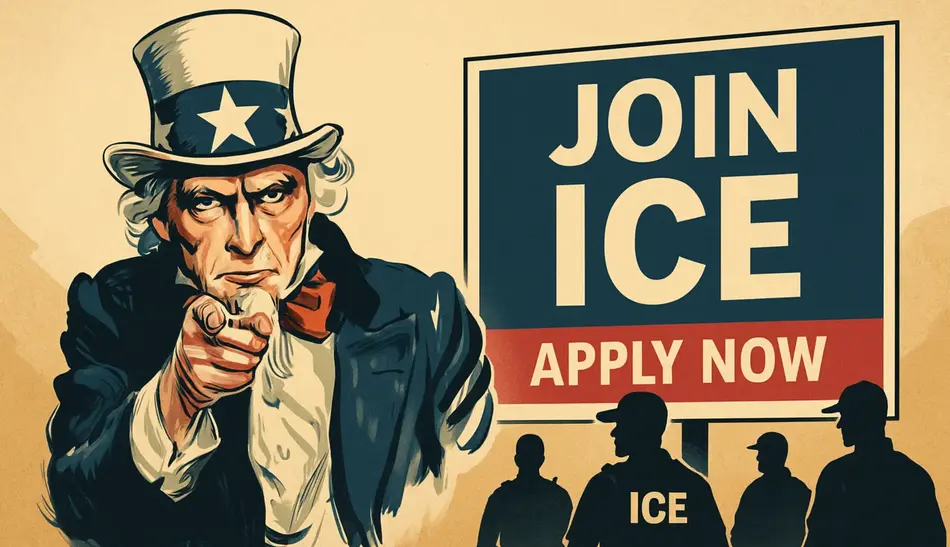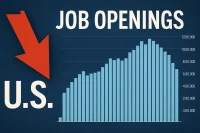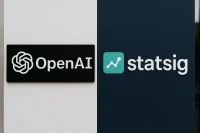For generations, U.S. government recruitment campaigns have leaned on patriotic imagery—Uncle Sam pointing at young men with the iconic call, “I Want You.” But in 2025, the Department of Homeland Security (DHS) is revamping that tradition with a distinctly modern twist: social media memes.
With the Trump administration directing DHS to hire an unprecedented 10,000 Immigration and Customs Enforcement (ICE) officers and 3,000 Border Patrol agents, officials are experimenting with everything from patriotic memes to influencer campaigns to attract recruits. Backed by a massive $170 billion enforcement budget, the push has been labeled by critics as both unprecedented and dangerous.
The Campaign: Patriotism Meets Pop Culture
Instead of old-school posters and job fairs alone, DHS is targeting Gen Z and millennials with:
- Meme-style graphics that echo viral social media trends.
- Patriotic videos with military-style music and imagery.
- Targeted ads on TikTok, Instagram, and YouTube, despite ongoing security debates about the platforms.
- Influencer partnerships with military veterans and law enforcement figures who share “day in the life” content about ICE work.
The message: ICE jobs are stable, patriotic, and adventurous—an opportunity to “defend America at the front lines.”
Why the Urgency?
The aggressive campaign reflects both political priorities and operational challenges:
- Record Migration Pressures – Surging migrant arrivals at the U.S.–Mexico border have fueled calls for more enforcement staff.
- Political Agenda – President Trump has made immigration enforcement central to his second term, framing it as both a security and sovereignty issue.
- Workforce Shortages – ICE and CBP face attrition and hiring challenges; younger workers often see the jobs as too risky or politically controversial.
DHS leaders argue that unconventional tactics like memes are needed to compete for attention in a crowded job market.
Looking to Recruit Smarter?
Post your jobs on WhatJobs and reach candidates where they already are—online.
Post a Job Now →Relaxed Standards Raise Concerns
To meet quotas, DHS has reportedly eased certain eligibility requirements:
- Shortened training periods.
- Streamlined background checks.
- More flexible physical fitness benchmarks.
Critics say these changes could compromise the quality of recruits and increase the risk of misconduct or extremist infiltration.
Criticism: A “Private Army” in the Making?
Civil liberties groups warn that the combination of relaxed hiring standards, massive expansion, and propaganda-style recruitment risks creating a force less accountable to democratic norms.
- Oversight Rollbacks: Some internal watchdog offices are being downsized, reducing external checks.
- Civil Rights Concerns: An expanded ICE presence may lead to more aggressive raids in immigrant communities, heightening fear and mistrust.
- Cultural Messaging: The reliance on memes and militaristic imagery suggests a shift from civil enforcement toward a quasi-military posture.
One advocacy leader described the recruitment drive bluntly: “This isn’t a workforce expansion—it’s a private army in the making.”
Supporters See It Differently
Conservative lawmakers and DHS officials defend the campaign as:
- Necessary to enforce immigration laws and secure the border.
- Appealing to a generation that spends much of its time online.
- Efficient, given the scale of recruitment needed in a short time.
Veterans’ groups also support the effort, noting that many transitioning service members find law enforcement careers a natural next step.
The Social Media Factor
The use of memes in federal recruitment represents a cultural turning point.
- Past campaigns relied on serious, authoritative branding.
- Today’s campaigns mirror viral content, seeking to blend patriotism with relatability.
- The gamble: a meme can go viral—but also backfire, opening DHS to ridicule or criticism.
Experts in political communication note that this approach mirrors broader trends, where governments increasingly use digital-first propaganda to shape public opinion.
Looking to Recruit Smarter?
Post your jobs on WhatJobs and reach candidates where they already are—online.
Post a Job Now →Broader Implications for Recruitment
The ICE campaign highlights wider questions about the future of U.S. recruitment:
- Is meme-based recruiting effective, or does it trivialize serious roles?
- Will relaxed standards lead to a capable workforce—or a liability?
- Can government agencies compete for Gen Z talent against tech and private-sector employers?
These questions will shape not just immigration enforcement, but also the broader credibility of federal hiring strategies in the digital era.
FAQs
Q1: Why is DHS using memes to recruit ICE officers?
To appeal to younger candidates who consume most of their information on social media, especially platforms like TikTok and Instagram.
Q2: How many new officers does DHS want to hire?
The current goal is 10,000 ICE officers and 3,000 Border Patrol agents by the end of 2025.
Q3: Why are critics worried?
Because rapid recruitment combined with lowered standards and meme-style propaganda could increase misconduct and undermine oversight.
Q4: Is this strategy working?
It’s too early to tell, but DHS reports higher application interest online. Critics caution that quantity doesn’t guarantee quality.
Case Study: The “Uncle Sam Meme” Campaign
One viral ad currently circulating shows a reimagined Uncle Sam poster—but instead of pointing sternly, the character wears sunglasses and flashes a meme-style caption: “ICE Wants You (Yes, You Scrolling TikTok).”
The ad blends humor with patriotism and has been widely shared across platforms. Supporters say it’s clever marketing that resonates with Gen Z. Detractors argue it trivializes a serious job that carries life-or-death responsibilities.
This example underscores the fine line DHS is walking: using meme culture to grab attention while risking public backlash for oversimplifying the gravity of immigration enforcement.




